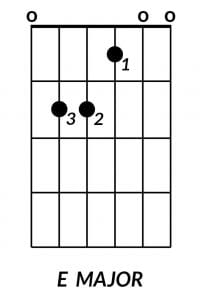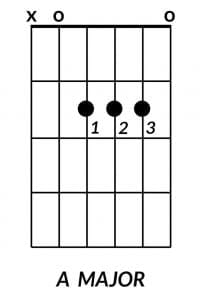Hey!
How did your mentor gain their experience/expertise?
One way that my mentor gained his experience in playing guitar was by performing in front of small audiences as part of a band as well as a solo artist. This meant doing local gigs at places like bars and gaining experience as a musician in the field rather than just practicing in an isolated environment. These local performances as part of group and alone allowed for him to not only practice his skills, but learn about what it was like to set up a performance and play in front of an audience.
Another way that my mentor became more of an expert in his field was by teaching others how to play the guitar. After my mentor was no longer in his band, he began teaching people to play guitar for a low cost and gained experience in that aspect of the skill, which is very helpful for me as a mentee and him as my mentor, because he is not new to teaching and mentoring.
Finally, although my mentor no longer teaches guitar or plays in a band, he does still do local performances and gigs 2-4 times per week. This means that his knowledge of both the skill and the public environment is still very fresh and current, which is beneficial for me because I know that his skills and knowledge are practiced and used frequently.
What were those experiences like for your mentor?
Playing in a band was good for my mentor because there was lots of collaborative effort going into their playing, which is something that definitely adds to the experience, but it was also difficult because there are multiple people. This made scheduling harder, in terms of both practicing and gigs they wanted to perform, because trying to find a schedule that worked for everyone was more difficult than finding one for one or two people. It also meant that there were occasional conflicts of ideas.
As for teaching, it was also difficult for scheduling, but it was a very rewarding experience for my mentor. He found that it was nice to see his students progressing and improving in their learning and skills, and he felt a sense of pride in their growth because he taught and guided them in their learning. He found it satisfying to watch the hard work of both himself and his students pay off as they improved. Also, teaching is very commonly expressed as a great way to improve your skills and understanding in a particular area because it not only requires you to have a firm grasp on the content you’re teaching but also allows you to view and learn about it from a different perspective.
As for playing solo gigs, my mentor clearly enjoys them, as they have continued to be a part of his schedule even now, years later, and not as a rare occurrence. They provide him with an opportunity to practice and keep his skills and knowledge fresh, as well as to continue gaining experience.
What wisdom have you gained from your mentor so far?
Something I have learned from my mentor about playing guitar is that some sub-skills and aspects come with practice and experience, meaning they are more naturally developed over time rather than taught. An example of this is how to sit and how to hold the guitar in a comfortable position. Although you can teach recommended positions and give pointers, what my mentor has taught me is that as I continue playing the guitar, over time I will figure out what works and is most comfortable for me. This experiential development shows up in a few of the technicalities of playing guitar as well as in many other skills and these sub-skills will come more naturally over time and cannot be learned fully through instruction alone.
Another piece of wisdom that I have gained from my mentor, related to the previous one, is that improvement is directly tied to and influenced by practice time and effectiveness. Practice is most likely the most important part of improving in playing the guitar, and without it is very unlikely that you will see any signs of growth or improvement. Because of this, if you practice often and you practice what you need to, (what you need to improve not what you are good at), you will get better as you continue, but you will not if you don’t practice. Also, not only will practicing ensure that you are getting better at the sub-skills you have learned, but it will also encourage the experiential growth I addressed previously, as you gain more experience and comfort as you practice and play more.
What have you learned so far, in terms of facilitation strategies, that might contribute to your own development as a mentor?
A facilitation strategy I have learned from working with my mentor is encouraging constant practice in between lessons. Practice is an integral piece in improving any skill, guitar included, and it is nearly impossible to see a change in skill level when there is no practice. This is why making sure that your mentee is practicing the skill they are learning frequently between lessons is important, even if this is just by a friendly reminder or check-in every once in a while. This can help further the mentee’s improvement, as well as show them that you are involved and care about their learning, which is a valued part of any mentor-mentee relationship.
Another strategy that I have noticed is more helpful and beneficial for the mentee is altering the content in each lesson based on their improvement since the previous one. Teaching in small pieces so that they don’t get overwhelmed is also a good tactic for keeping them motivated. Changing what you teach based on how much the mentee has improved since the last lesson means that they are learning what they will most likely be comfortable with at that point, which is best for keeping them motivated and not overwhelmed. This strategy also helps when you have a set lesson schedule because instead of perhaps postponing a lesson because the mentee has not improved enough, you can just teach less during that lesson.
Report on any progress and sub-skills learned so far. Share photos, videos and sound recordings where applicable.
One of the first steps in my learning was to become familiar with the fretboard of a guitar. This meant learning the strings and their notes, as well as how they change based on where I’m holding them down on the fretboard. This turned out to be very similar to how a piano is laid out note-wise, and my previous experience with piano helped me pick this up fairly quickly.
After this, I learned three major chords that are fairly simple and common in songs. These chords were the E, the A, and the D Major chords, which I have added reference pictures for below.



Finally, I have also learned the minor pentatonic shape. Specifically, I have learned how to play the A Minor pentatonic scale, but the same movements or “shape” can be moved around the fretboard to be played in a different minor key. I have just learned where this shape belongs on the fretboard for the key of A Minor. I won’t go into detail about what the minor pentatonic scale is, but you can learn more about it here. My mentor also briefly taught me the major pentatonic shape, but it was a very quick overview and I have not been working with it or practicing it much.